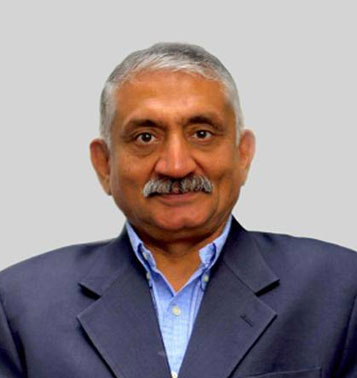PAFI VIEWS
As lobbying evolves into advocacy, public affairs takes on a more critical role in India Inc
Author - Ajay Khanna

As lobbying evolves into advocacy, public affairs takes on a more critical role in India Inc
A little over two years ago, Covid-19 — a once in a century pandemic — upturned our lives like nothing we have ever seen before. Worse, the deadly virus is yet to run its course.
This disruption, though, had a significant upside. It forced public policy to claim centre stage and simultaneously put the spotlight on the role of public affairs — as managing Covid required juggling government relations, honing focused communication and information dissemination strategies, leveraging corporate and social responsibility and developing strategic thinking.
Even better, for the first time, there was a complete convergence of interests among the key stakeholders in the Indian economy. The traditional silos collapsed and the government, corporate India and consumers were aligned as equal partners in forging a national public policy response to deal with this unprecedented challenge. The Public Affairs Forum of India (PAFI) and its members played a key role in this mission and worked closely with various government bodies and the NITI Aayog.
In short, national interest is the new glue. What is good for an individual works for companies; and if it works for both these key stakeholders, then national interest is implicitly served. The government, on its part, is very clear: The public sector will no longer hold the commanding heights of the Indian economy and business has a central place in the new scheme of things.
However, for corporate India, this spot on the national high table comes with a price. Corporate behaviour is very closely scrutinised now, specially when stakeholder management has also witnessed a 360-degree change. More and more companies today have a well-defined public policy or public affairs department that is seen as a strategic function — much more integrated, cutting across all other departments and hierarchies.
Public affairs and policy advocacy require relentless attention and a long-term commitment from both companies and individuals. In other words, companies will have to rejig their internal structures and invest in transparency. Given the prickly history between the two key stakeholders, developing the trust quotient won’t be easy.
A Profession Evolves
The last decade witnessed some healthy shifts in the public affairs and policy advocacy space in India. The changing role of advocacy has led to the emergence of today’s evolved public affairs professionals, transitioning from India’s iconic “liaison person”. These professionals are now able to engage with the government on an equal footing as partners and stakeholders.
Given the difficult history of “Licence Raj”, lobbying had become a key part of the country’s governance lexicon. However, the dismantling of this regime and the launch of liberalisation has made lobbying redundant. Issues are rarely company specific. Instead, the concerns are industry related and, hence, largely in the domain of public policy. These shifts include the active engagement of companies by governments through open consultations. In this differentiated process of policy making, public affairs individuals have gained an important and a critical role to play.
Now that the focus has shifted to public policy, the government of the day has signalled its comfort to hear out industry bodies or such coalitions. Consequently, public affairs professionals are coalescing to forge a common agenda. This is never easy and requires consummate patience as well as strategic thinking to accommodate company-specific challenges within issues concerning the entire industry.
In other words, public affairs professionals are rapidly recalibrating their skills to be able to string together a narrative, instead of the conventional practice of compiling exhaustive information, to woo support for their cause. Further, it makes more sense to evolve a win-win strategy for all stakeholders, including for the government, to incentivise a buy-in.
As a result, acquiring domain expertise is key in building a credible narrative. Not only does it provide a bridge with those driving public policy change within the government, it also requires public affairs professionals to engage constantly with officials. The collateral gain is that it gradually builds mutual trust.
In order to succeed as public affairs professionals, it is becoming imperative to be proactive with a strategic approach and display readiness to deal with all challenges. This requires envisaging upcoming policies and doing the groundwork much before a situation becomes critical. One can develop white papers, be aware of what’s happening globally and ensure that such papers are floated through coalitions so that the government also starts looking at these for ideas.
Of late, there has been a clear shift in the industry from network lobbies to knowledge lobbies — i.e., from someone with the right connections to someone with the right expertise. This means that while knowing somebody can help open the doors, knowing and deliberating the content of the conversation is much more critical. Professionals need to have a certain degree of knowledge in current affairs and other topics, whether it’s the technology or domain expertise, so as to influence public policy.
Several companies are today hiring young professionals to enhance and improve their social media presence. These people have the expertise and a penchant for social media management, which the companies want to put to use. Largely, the public affairs function today is getting integrated into various functions within a company, with greater involvement of the top management. The functions of this department could include government relations, corporate communications, regulatory affairs, CSR, branding, reputation management and media relations, among others. This unified function is today taking a massive burden off the shoulders of the owners, boards and CEOs by dealing with external stakeholders in an integrated manner.
It is clear that the role of public affairs professionals is evolving. So far, they have been in the spotlight as a crisis manager, particularly in the aftermath of Covid-19. Ideally, they will need to evolve into risk managers. For this, public affairs professionals will have to be proactive and not reactive.
Ajay Khanna is with Jubilant NSE 0.91 % Bhartia Group & is Co-Founder of PAFI. The views are personal.


